Young carer: 'I thought every child looked after their mum'
- Published
Lucy Childs said a social worker wrote a letter of support to her university making her sound like Superwoman
When she was seven years old Lucy Childs thought every child helped care for their parent.
She helped wash and dress her mother, who has schizoaffective disorder and spina bifida, and she looked after her younger sister.
But while she was teased for being a "mummy's girl" in the playground, Lucy had no idea her life was different.
Now 22, she admits she just thought other children were doing a better job at looking after their parents.
From a young age, Lucy, who grew up in the Rhondda village of Rhydyfelin, helped her mother with simple things, but the responsibility got more intense when her sister was born when she was just seven.
"On a good day my mother would read me stories but on a bad day, I would read to her," said Lucy, who said she was born a carer.
"It seems silly being a three-year-old reading bedtime stories to your mum, but that's what she needed.
"When I was seven, my sister was born, and although I had begged for a sibling, I soon realised it was a lot more work than I was expecting."
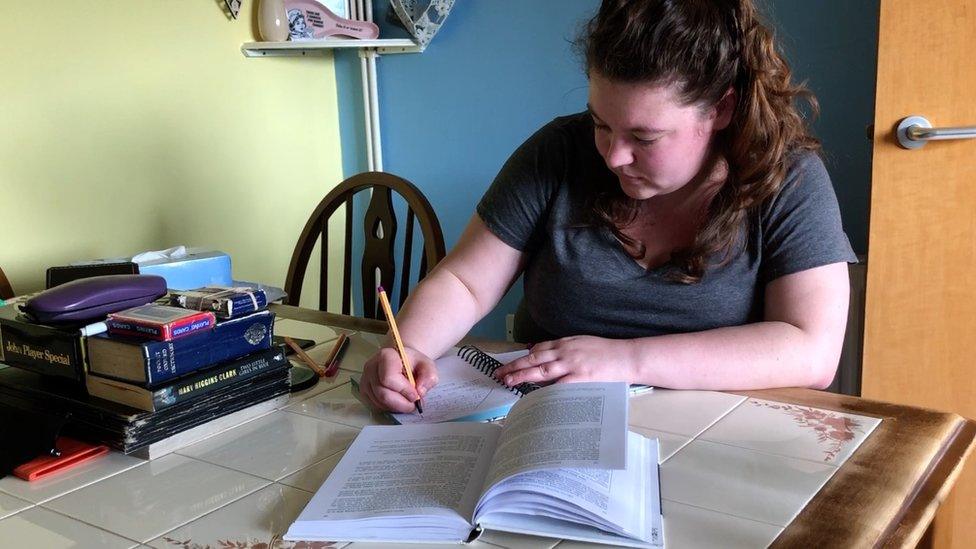
Lucy received support to help her complete her studies
It was only when she hit breaking point when she was 17 that she looked for help from the council and realised she could get support as a young carer.
She is now trying to help other young carers to deal with the responsibility.
Still only a child herself, Lucy's young life spun from doting daughter to carer for a parent and small sibling. Not that she fully understood what being a carer meant.
There was no time for playing, for spending time with friends or simply being a child.
Her day began early to get her mum and sister out of bed and dressed, make breakfast and prepare lunch, all before getting her sister, and herself, to school on time.
"I was late quite a lot but my teachers didn't really mind because I was always ahead on my work.
"I was a bright kid and fought to keep people from knowing what I was doing by completing homework before it was due to keep teachers from looking too closely."
Lucy hid her secret from those around her, first through naivety and then through fear.
She innocently thought every child cared for their parents and siblings but as she gradually realised her life was far from ordinary, she was afraid of the repercussions of her secret getting out.
"I spent my break-times and lunchtimes ringing my mum to check she was ok, that she'd eaten and taken her tablets because sometimes she would forget.
"I get a lot of negative comments for doing that. I was called a "mummy's girl" because I spent all day worrying about her and my sister.
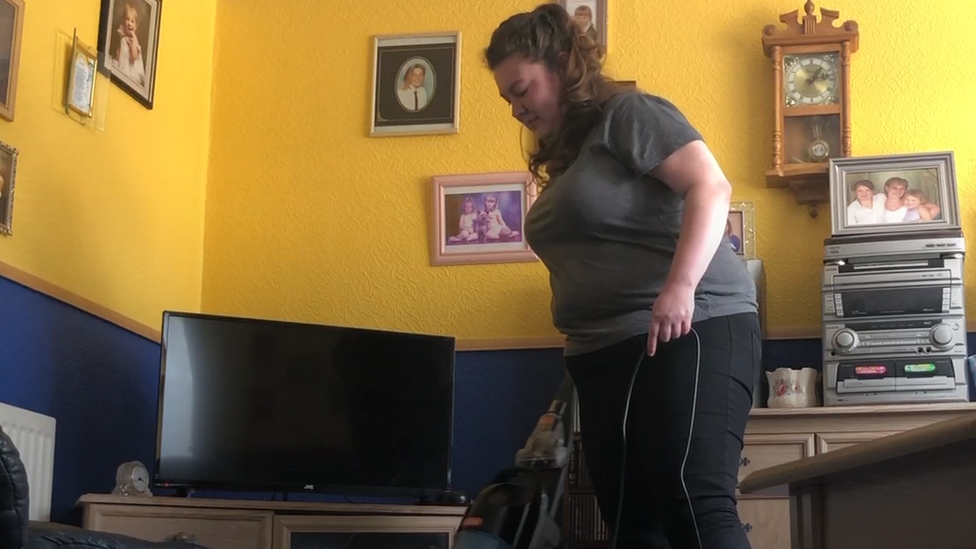
Lucy was doing the housework while trying to complete homework and get to school on time
"Sometimes I took days off school to take my mum to appointments. I never told my friends because I thought that's why they took days off.
"It got to the point that I just thought they were dealing with caring for their parents better than I was.
"Missing out on sleep seemed like a small price to pay to keep up the charade. My mum and sister mean everything to me, and the thought of my mum being put into hospital and me and my sister going into care terrified me."
It was not until she sat and spoke with a teacher, who noticed how tired Lucy was looking ahead of her AS examinations, that she finally opened up on her double-life.
It was an immediate weight off her shoulders and helped put her in touch with the help she desperately needed.
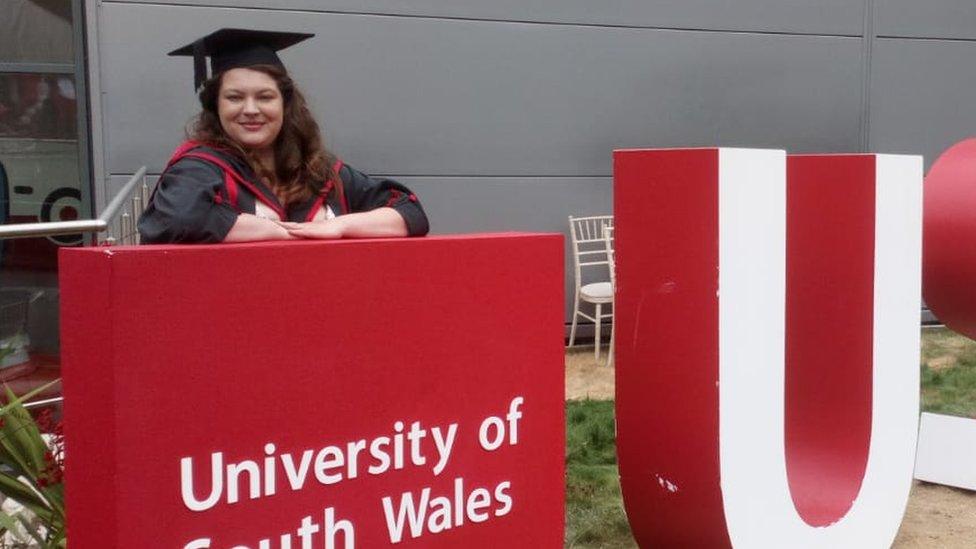
Lucy graduated with a BSc Mathematics from University of South Wales
With the support of Rhondda Cynon Taff council's young carers service, external, Lucy was able to complete her A-Levels, get a place at university and, this summer, graduate with a degree in mathematics.
"I doubted how anyone could help but their intervention helped turn my life around and become who I wanted to be," said Lucy.
"I'm about to start a second degree to become a teacher, to help kids that are in my position, and perhaps I can be that teacher that they need."
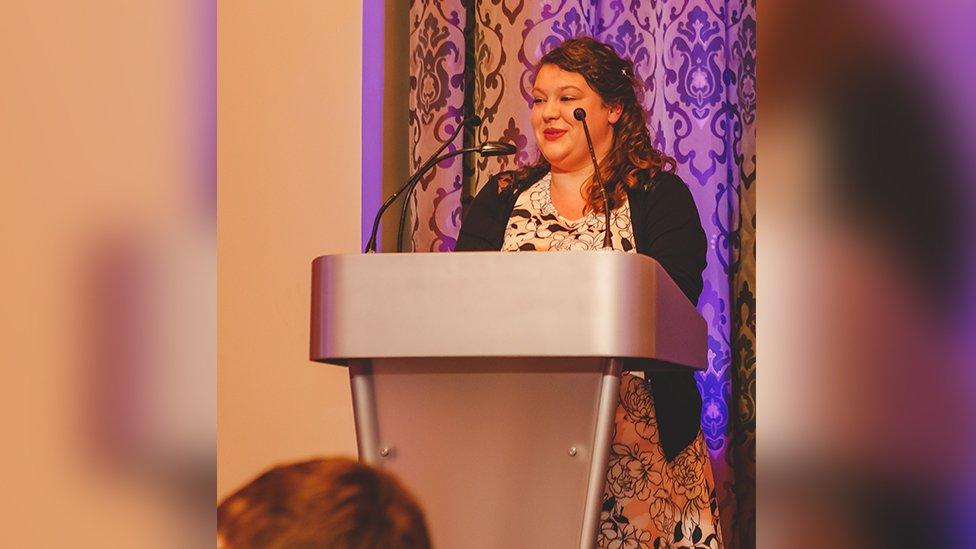
Lucy now regularly speaks about her experience to raise awareness of the problems faces by young carers
Kerris Olsen- Jones, a youth carer support worker, described Lucy as a "crusader" to help other young carers by speaking publicly of her difficulties.
"Lucy is a totally different character now to when we first met her.
"She was timid, quiet and socially isolated. Being a teenager is a difficult time enough but to have a caring role is a lot to take. She had massive responsibility at home but didn't even realise she was a carer.
"Now she is confident and speaks about how difficult her situation was, she hopes to raise awareness make things better for other young people in the same position.
"I just hope people are listening."
- Published5 February 2019
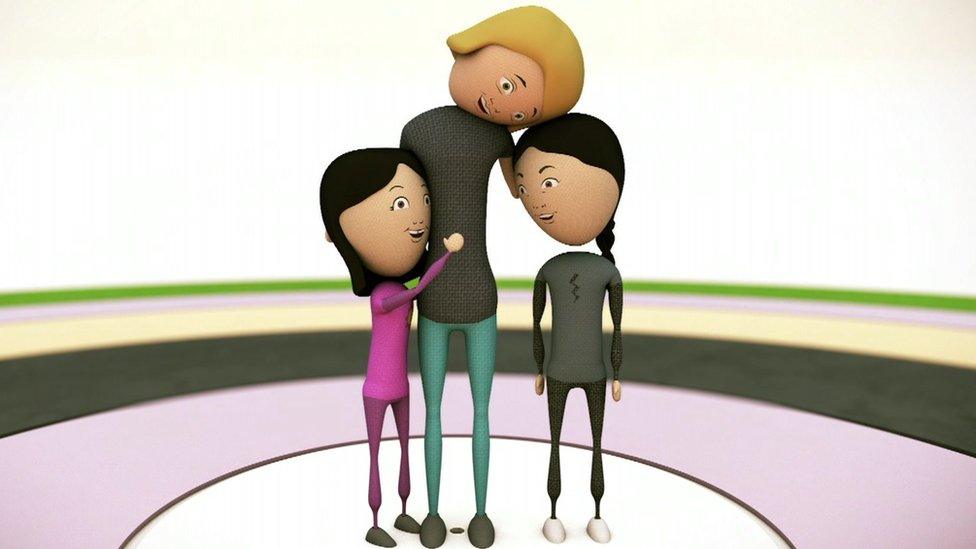
- Published13 September 2018
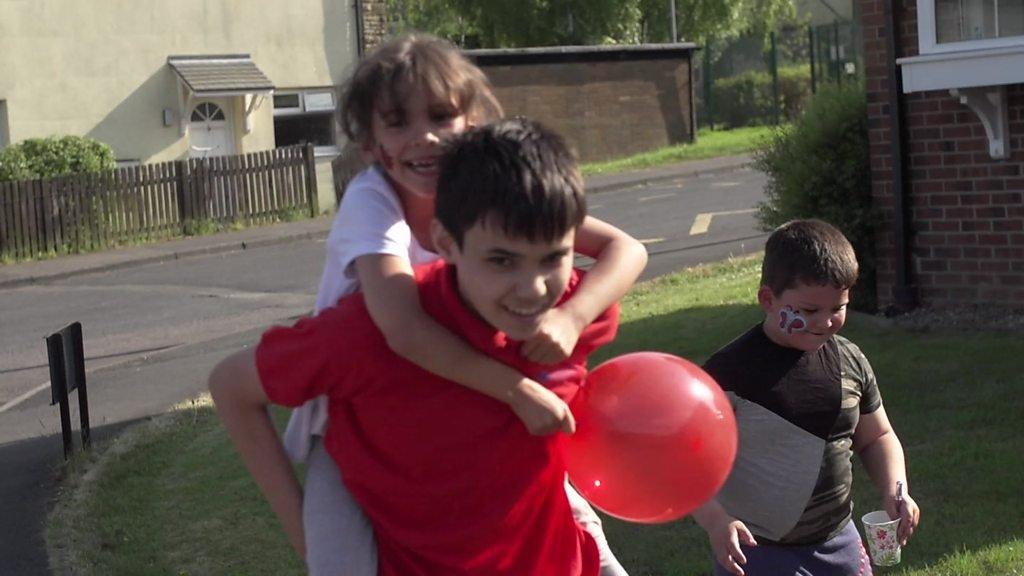
- Published2 July 2015
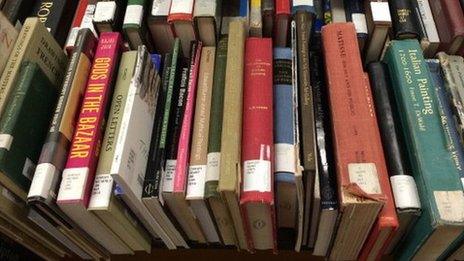
- Published28 August 2018
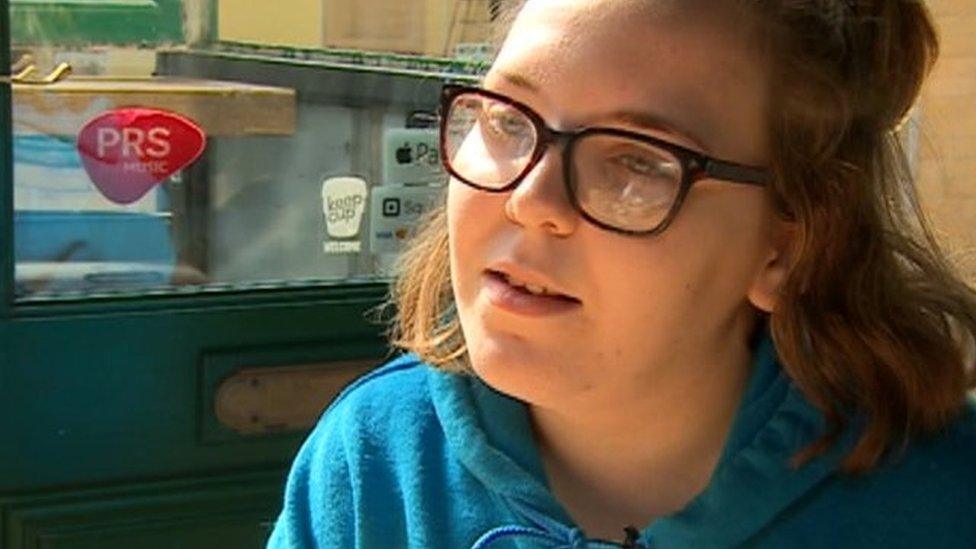
- Published2 August 2018
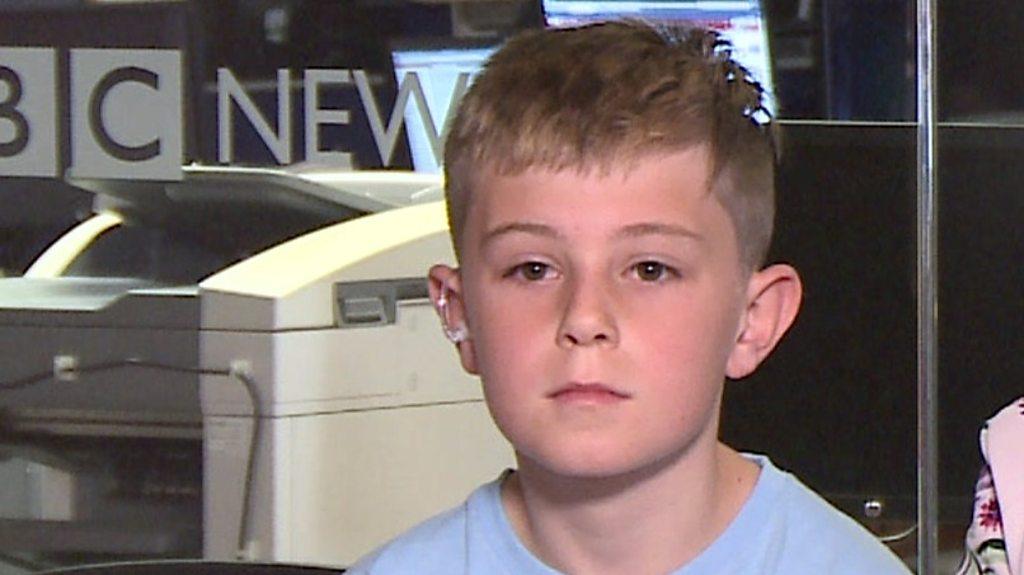
- Published6 December 2017
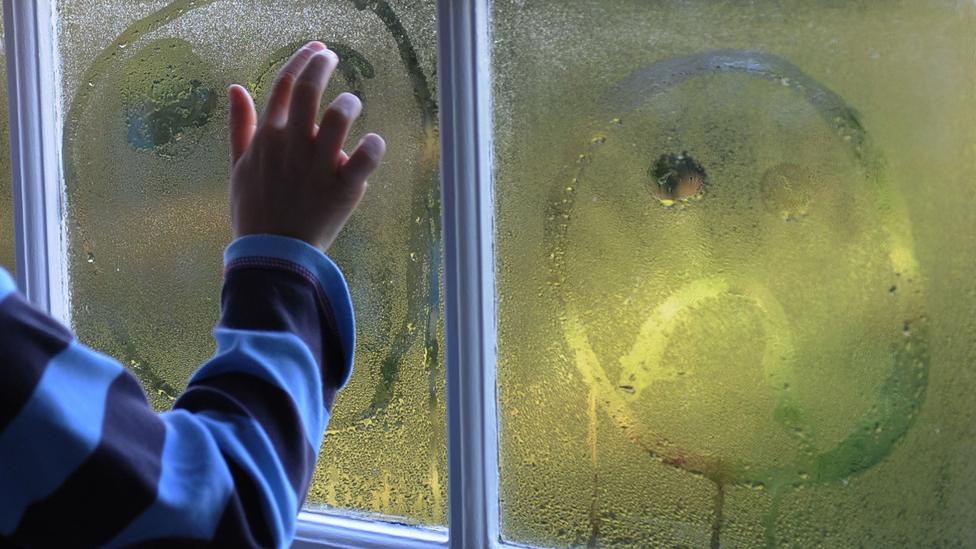
- Published31 May 2018
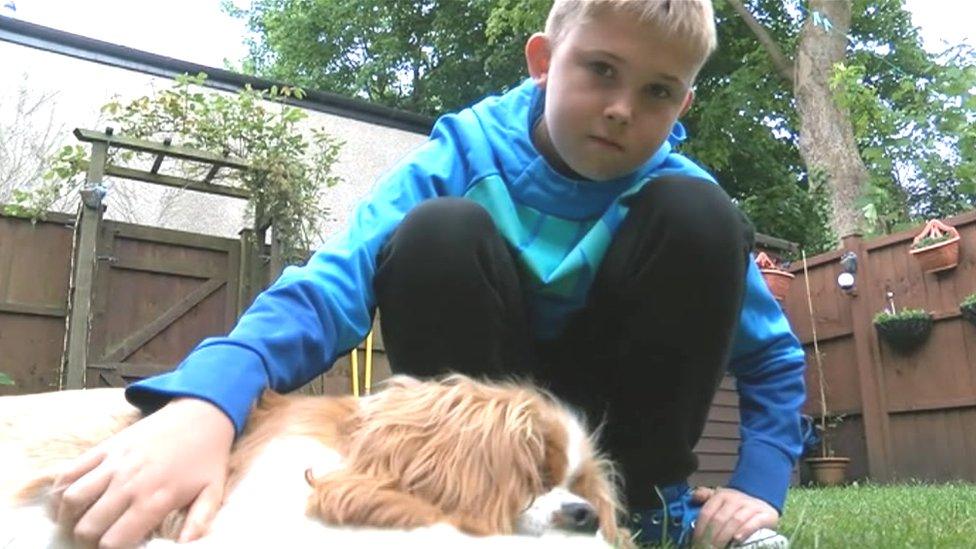
- Published31 May 2018
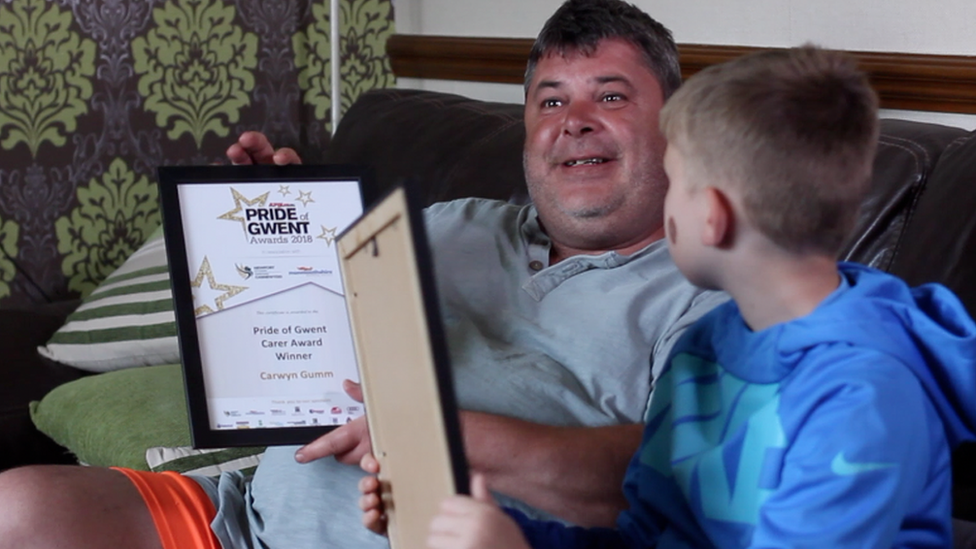
- Published27 December 2016
